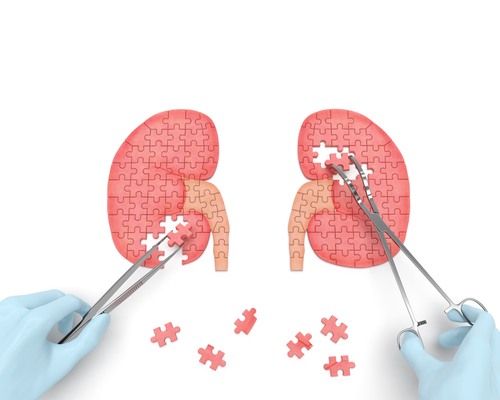US Kidney Disease Data Points to Need for Early Detection and Better Awareness, AKF Says

While the latest information from the United States Renal Data System (USRDS) is encouraging, it also highlights the need for early care and heightened awareness of kidney disorders such as Alport syndrome, the American Kidney Fund (AKF) said.
Likely due to better treatment and prevention, the rate of new cases of end-stage renal disease (ESRD) is the lowest since 1998, according to the USRDS 2019 Annual Data Report, which provides 2017 statistics. What’s more, kidney failure patients in the U.S. are living longer.
The overall number of end-stage patients rose 2.6 percent — to 746,557 — in 2017 from the year before. At the time of the study, 523,709 people were on dialysis, and 222,848 had kidney transplants.
However, one-third of 124,408 ESRD patients received little or no kidney specialist care before their 2017 diagnosis, the report states. Such care in early stages of kidney disease helps ward off kidney failure, as well as complications such as heart attack and stroke.
Characterized by kidney disease, hearing loss and eye abnormalities, Alport syndrome affects between 30,000 and 60,000 U.S. residents, and accounts for roughly 3% of children with chronic kidney disease (CKD) and 0.2% of adults with ESRD in the United States.
Without treatment, 90 percent of males with X-linked Alport syndrome — the disease’s most common form — develop kidney failure by age 40. Kidney failure less frequent and develops more slowly in females. While there are limited treatments available, research is ongoing and various therapies are used for symptom management.
“Helping people live longer, healthier lives in the face of kidney disease is one of the top priorities of the American Kidney Fund, and this latest USRDS report shows there is an enormous amount of work to be done,” LaVarne A. Burton, AKF president and CEO, said in a press release.
The number of CKD patients who receive Medicare continues to increase, although rates of urine testing for albumin — which could detect early CKD — are still low, the report found. Only 43.2 percent of Medicare patients who did not have CKD but had hypertension and diabetes — the chief causes of kidney disease — were tested for the protein.
The report follows the Trump administration’s Advancing American Kidney Health Initiative, which aims to lower the number of U.S. residents going into kidney failure by 25% by 2030, and have 80% of new ESRD patients either undergoing a transplant or receiving at-home dialysis by 2025.
However, Burton said the 80% goal is unachievable if one-third of patients enter kidney failure with little or no prior nephrology care. While kidney disease affects 37 million Americans, 96% of those with early CKD are unaware of it, either because they’re unaware they’re at risk, or because kidney disease is largely asymptomatic until later stages.
“We want people to be able to choose from the full range of treatment modalities, and preparing for home dialysis or for transplant takes time,” she said. “We are working to give people the tools they need to detect kidney disease earlier and manage it better.”
While the organization supports the goal of identifying more kidney disease cases early through the primary care of Medicare recipients, reaching beyond the Medicare population is urgent to change the national kidney disease course, Burton said.
Relatedly, the AKF has begun a nationwide effort to impede or slow CKD progression, by empowering individuals through education and other tools, including downloadable physician discussion guides.
Called Know Your Kidneys, the Janssen Pharmaceuticals-sponsored campaign focuses on diabetes and hypertension, and complements AKF’s free kidney health screening program, the nation’s largest. The campaign is built around this message: “Know life’s possibilities. Healthy kidneys make them happen.”
The USRDS is a national data system that collects, analyzes, and distributes information about CKD and ESRD in the United States.







Leave a comment
Fill in the required fields to post. Your email address will not be published.